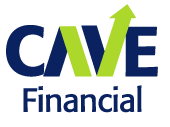3 Money Mistakes to Avoid After Graduating College
Tue May 21st 2019
Right now millions of students are preparing for life after college, so there's no time like the present to get your financial life in order. Below are three common money mistakes to avoid as you're heading out for life in the real world.
Right now millions of students are preparing for life after college, nailing down their jobs, housing, cars and more. To save, moving back home with mom and dad might be the only option, but if that's not what you have in mind for your 20s, there's no time like the present to get your financial life in order. Below are three common money mistakes to avoid as you're heading out for life in the real world.
Mistake #1: Not accounting for your student loan payments
Last year's grads came out of school with an average of $30,000 to $37,000 in student loan debt, and 1 in 6 will graduate with debt that exceeds their income.
You typically have six months — until November (if you graduate in May) — before your repayment plans kick in every month for about the next 10 to 15 years. This isn't something that will go away if you ignore it, so get out in front of it and you'll be much better off.
Nearly half of borrowers did not know what their monthly minimum payment would be, new study from Lendkey Technologies, with as few as 10% of 18- to 34-year-olds knowing the exact amount they'll be expected to pay. Which means 90% of young adults are not factoring these loans into their budget before they sign off on their first apartment and car payments.
Mistake #2: Not setting a budget
If you're constantly behind in your budget by $300 to $500, the monthly average payment for grads, you'll be playing catch-up forever. The best way to get an early handle on your financial life is to follow the 50/30/20 budgeting rule: Divide up your after-tax income so that you're spending 50% on needs, 30% on wants and putting 20% away for savings.
The best way to stick to your savings plan is to set it and forget it, automating transfers to accounts that you name with specific goals in mind, whether it's your emergency savings account, summer vacation plans, or your first home.
Mistake #3: Not investing in your retirement
It might not seem necessary at the start of your career, but taking advantage of your biggest asset -- TIME -- can really pay off in the long run.
Recent grads may not have a lot of money but having time is the one advantage you have to allow your investments to grow and for compound interest to work its magic on your earnings. Retirement expert Ed Slott of IRAHelp.com reminds young adults that if you do nothing else, but put $5,000-$6,000 away a year from age 25 to 65 in a Roth IRA, and you'll likely have over $1 million tax-free for retirement. But if you wait five years and start investing at age 30, you'll probably end up with $200,000 less.
Stick to that, and your older self will thank you. Class dismissed.
Article taken from Yahoo Finance, by Jeanie Ahn, 1st May 2019

Need our help?
We're here to answer your questions.
service@cavefinancial.co.nz
09 302 7310
1D Roberta Avenue
Glendowie
Auckland 1071
New Zealand


